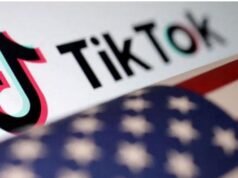Ex. NDTV reporter Barkha Dutt once again opposed the Modi Government’s Bill. Barkha dutt partially supported the “Triple Talaq Bill”, but as usual her intentions are clear again and people sensed it. Barkha Dutt said:

But she got thrashed and humiliated brutally:





Earlier she wrote:
An election in Gujarat, the home state of India’s all-powerful Prime Minister Narendra Modi, just shut down the jokes about his principal challenger: Congress President Rahul Gandhi.
Modi’s party, the BJP, won the election for a record fifth time and now controls 19 of the country’s 29 states. But though the final tally underlined the primacy of Modi as India’s most indomitable political personality, it also held out a hint that he may no longer be invincible. The final vote score left the BJP tantalizingly short of the psychological threshold of 100 by just one seat — the BJP narrowly escaped defeat.
Now, no one is laughing at the Congress party. Just that fact alone gives Rahul Gandhi a small victory even in defeat.
A year ago, while traveling through Uttar Pradesh, India’s most populous state, I met a Congress worker who wanted to talk to me about Rahul Gandhi. “Why do people keep saying ‘Pappu’ has failed,” he argued, “‘Pappu’ will pass with flying colors.” The word he used for the 47 year old who formally took charge of India’s oldest political party this month is a colloquial, derogatory expression for an inept, under-intelligent, child-like man. Though the party loyalist was praising the young man whose great grandfather, grandmother and father have all been prime ministers of India, his internalization of a snide adjective caused much mirth within the ruling BJP when the interview was broadcast.
This has been Rahul Gandhi’s main problem: He was constantly the butt of jokes on WhatsApp chats, online memes and comedy send-ups. In a country where an estimated 65 percent of the population is under the age of 35, the fact that he is 20 years younger than Prime Minister Narendra Modi should have been an advantage. Instead he was routinely tittered about and mocked even among college-going kids and the 30-and 40-somethings. The “Pappu” tag was routinely used (and not just by his political opposition) to underline his lack of serious engagement with politics. He was sneered at for his oddly-timed vacations and long-drawn out sabbaticals at critical moments in domestic politics. Unlike Narendra Modi, a tea-vendor’s son who is entirely self-made, Rahul Gandhi inherited his power; in his adult life he has been treated much like the rich kid at boarding school who was constantly ragged and scorned for being far too entitled.
The Gujarat campaign has changed that. While much of Indian politics is currently a contest between the old elites (Rahul Gandhi is a symbol of this) and the new establishment (represented by Modi and India’s neo-Right), the Prime Minister enjoys a brand popularity the Congress struggles to play catch-up with. But in Gujarat, Gandhi and his allies hunkered down and fought a good fight. Modi’s campaign sprint (34 rallies in 15 days) outpaced them; still Gandhi offered a respectable competition. He got himself a new social media spin doctor; his speeches were more confident and most importantly, unlike earlier, he did not vanish from the frontline leaving the battle to his foot-soldiers. In the BJP, slipping to below 100 seats for the first time in 25 years and the Congress besting its performance since 1985, the one thing Rahul Gandhi has earned in this election is the right to be taken seriously.
Acute challenges still remain for the Congress. The party was decimated nationally in the 2014 elections that first catapulted Narendra Modi to central power. The party is struggling to reinterpret the secularism of Rahul’s great-grandfather and India’s first prime minister, Jawaharlal Nehru. Nehruvian secularism clinically separated church and state — in India’s diverse and plural society the liberal answer instead may lie within faith, and not outside of it. In the Gujarat election, the party was careful to avoid overt courtship of the state’s Muslim voters, lest it be rejected as anti-Hindu. Rahul Gandhi made it a point to visit and be photographed at several temples, and his party spokesman even referenced the ritualistic ‘sacred thread’— a hierarchical Hindu caste symbol. The Congress still has to work out its ideological answer to the BJP’s rhetorical blend of muscular nationalism and Hindu majoritarian sentiment whenever its development slogan of ‘Vikas’ proves insufficient. During this campaign Prime Minister Narendra Modi even insinuated that his predecessor Manmohan Singh had been hobnobbing with Pakistani officials at a private dinner (talks between India and Pakistan are log jammed) where the Gujarat elections may have been discussed. The Congress demanded an apology, but the liberalism and secularism of the Congress remains fuzzy, undefined and often selective. It hasn’t yet chosen between a milder, me-too version of the BJP or a radically different philosophical counter. So far it has used the caste calculus and the stratification within Hindu society to try and stall the consolidation of a Hindu majority vote for the BJP.
The Congress did well with its focus on agrarian distress and the rural poor and lapped up gains among rural voters. But the BJP was unshakeable in the cities and towns of Gujarat despite the disruptive impact of some of the Modi government’s economic measures like the demonetization of currency, and the implementation of a new tax regime for goods and services. With half of the country poised to live in urban areas by 2030, figuring out how to appeal to the middle class and an increasingly aspirational India will be the main dilemmas for the Congress.
But for the moment, two truths emerge from Gujarat: The political primacy of Prime Minister Narendra Modi and the emergence of Rahul Gandhi as a politician. The jury is out on Rahul Gandhi’s success and failure. However, when a recent bulletin on a television news network condemned Gandhi for catching a show of “Star Wars” on the day of the verdict, the only joke was on the journalists who thought fit to seize on it. Narendra Modi’s overarching political dominance is intact, but the “Pappu” jokes about Rahul Gandhi should be over and done with.



